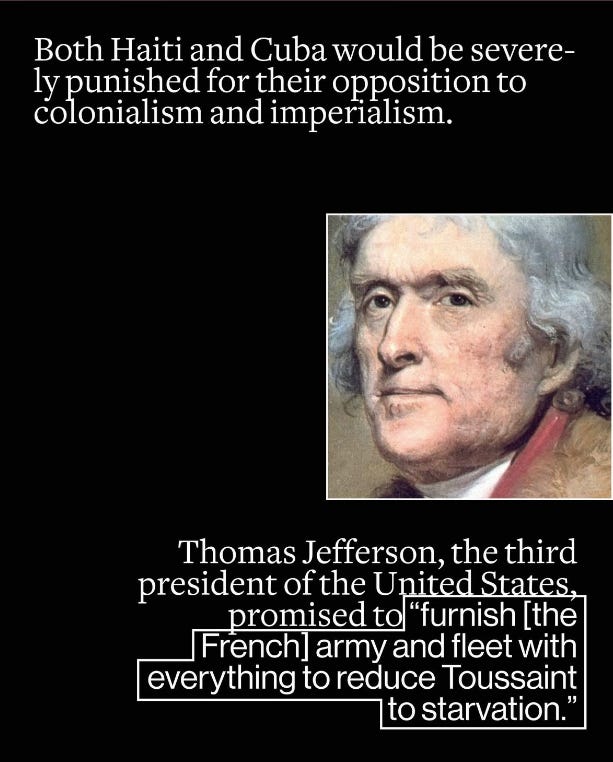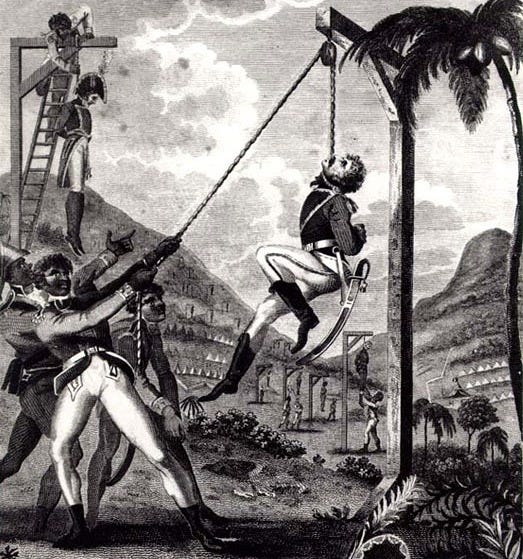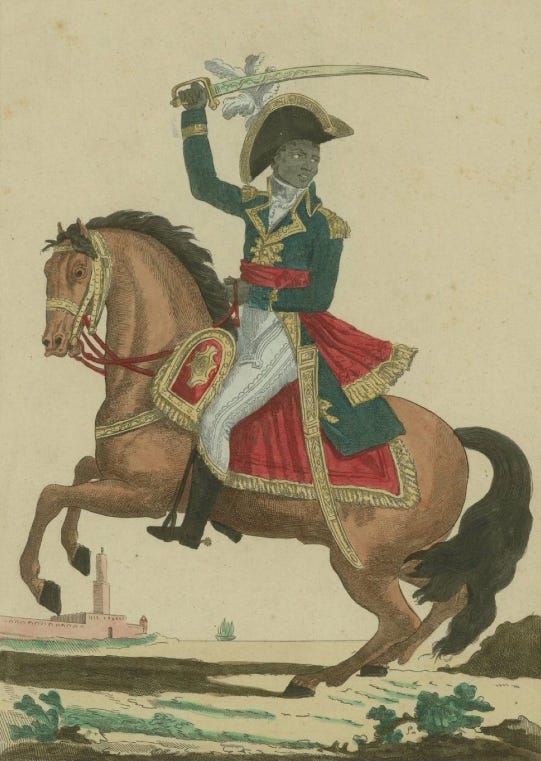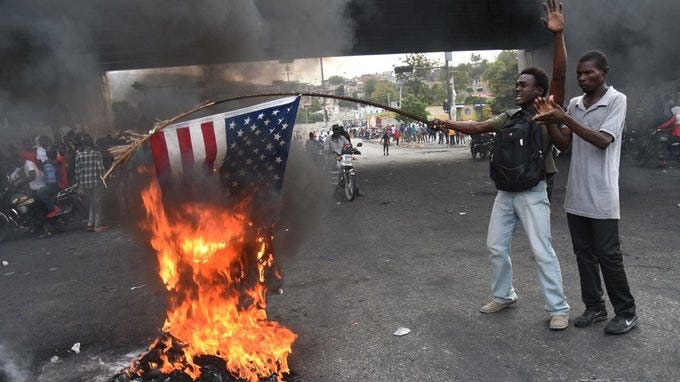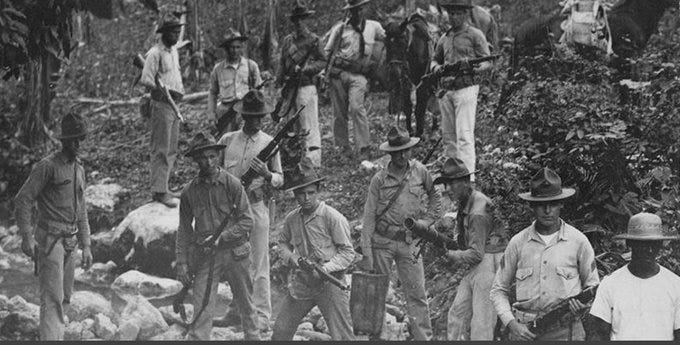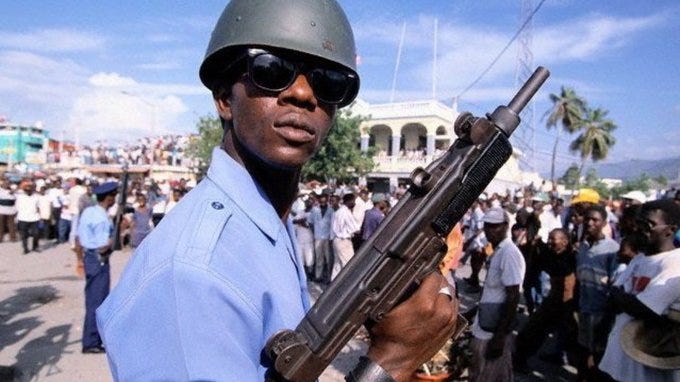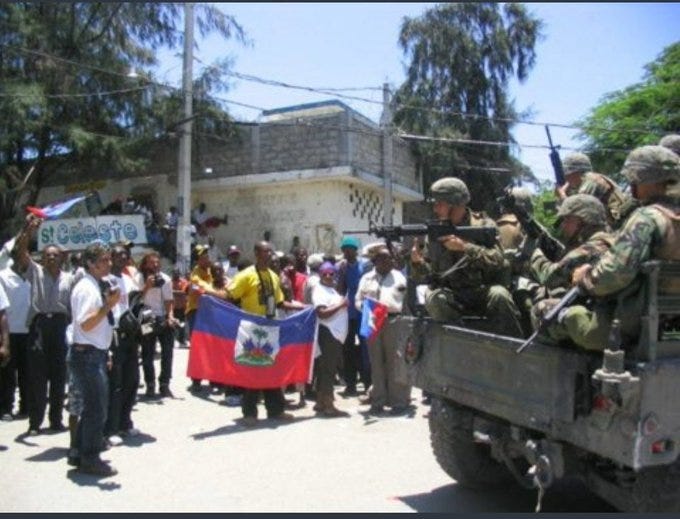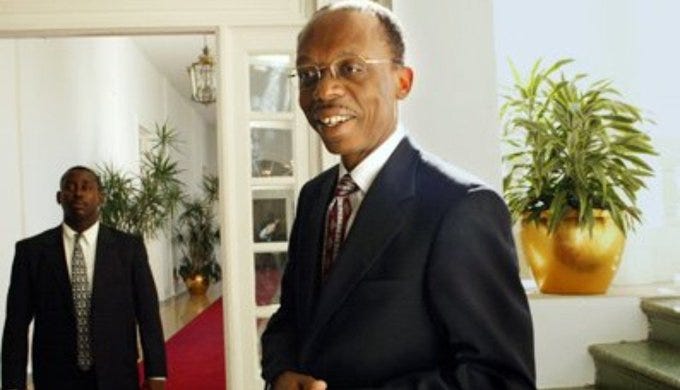Remembering the Caribbean Revolutions
More than a century apart and separated by sea, the Caribbean revolutions are united by the light they continue to bring and the fear they instill in those who would have them crushed.
From Progressive International:
On 1 January, we remember the triumphs of the Haitian and Cuban revolutions.
On this day in 1804, the Haitian people threw off the chains of enslavement and established the world’s first Black Republic. Exactly 155 years later, on the neighboring island of Cuba, Fidel Castro led the Cuban people to defeat the forces of imperialism and embark on their own project of socialist reconstruction.
Drawing parallels between these two great struggles for national liberation, Trinidadian Marxist historian C.L.R. James wrote that “what took place in French San Domingo in 1792-1804 reappeared in Cuba in 1958.”
Haiti, like Cuba, was forcefully woven into the fabric of capitalism. When Christopher Columbus came to Haiti in 1492, he sought gold.
“From gold comes wealth,” he wrote to Ferdinand and Isabella of Spain, “and with it whoever possesses it can do whatever in the world that he wishes.”
In the centuries that followed, the European colonizers did whatever in the world they wished—exterminating native peoples across the Americas and replaces them with enslaved human beings from Africa.
These crimes and the calamitous contradictions they created in the Caribbean societies, C.L.R. James wrote, “became tinder for both the Haitian and Cuban revolutions.”
After its revolution, Haiti became a beacon of internationalism. It supported liberation struggles far and wide—even dispatching troops and financing to help push back European colonizers seeking to subjugate Ethiopia. Benito Sylvain, a Haitian general who took part in that war, later helped convene the First Pan-African Conference in 1900.
Revolutionary Cuba, too, supported national liberation movements around the world—while sharing its advancements in medicine and its medical expertise with over 130 nations.
Both Haiti and Cuba would be severely punished for their opposition to colonialism and imperialism.
Thomas Jefferson, the third president of the United States, promised to “furnish [the French] army and fleet with everything to reduce Toussaint to starvation.”
Over 150 years later, his vicious policy would find echoes in the policies of the US State Department, which launched a campaign of “denying money and supplies to Cuba, to decrease monetary and real wages, to bring about hunger, desperation and overthrow of government.”
These policies of deliberate starvation remain unchanged to this day.
More than a century apart and separated by sea, the Caribbean revolutions are united by the light they continue to bring and the fear they instill in those who would have them crushed.
From Working Class History:
On this day, 1 January 1804, Haiti became an independent republic, following the revolution which had begun 13 years earlier as a rebellion of enslaved people against slavery and French colonialism.
Previously known as Saint-Domingue, it was the most profitable colony in the world, generating greater revenue than all of the continental North American colonies combined. This immense wealth was generated by the sweat and blood of enslaved Africans who were being worked to death in their tens of thousands on coffee and sugar plantations.
Shortly after the French revolution, which supposedly espoused the ideals of "liberty, equality and fraternity," on August 22, 1791 enslaved people rose up, demanding those ideals be realized, and slavery and colonialism abolished. Over the coming years, the rebels successfully defeated the combined armies of the world's biggest colonial powers: France, Spain and Britain. The 1804 declaration of independence abolished the colony of Saint-Domingue and reinstated the Indigenous Taíno name of Hayti. Europe and the US then promptly ostracized the fledgling republic, causing severe economic hardship.
In 1825, France finally agreed to recognize Haiti's independence, provided it compensate former enslavers to the tune of 150 million gold francs ($21 billion today) - a ransom which deeply impoverished the government and was not fully repaid until 1947. The United States only recognized Haitian independence in 1862, but this did not prevent it from invading and occupying it in 1915.
Learn more about this rebellion and others around the world in this book by CLR James: https://shop.workingclasshistory.com/.../a-history-of-pan...
From Friendly Neighborhood Comrade:
On this day in 1804, Jean-Jacques Dessalines proclaimed Haiti's independence from France in the port city of Gonaïves. This marked the end of a 12-year war against French colonial oppression and slavery and led to Haiti becoming the first free Black Republic.
After defeating the French, the former colony was renamed Haiti, which is the Indigenous Arawak name for the island and would become the first nation in the Western Hemisphere that abolished slavery.
The independence of Haiti was a major blow to the French Empire and would go on to inspire revolutionaries around the world.
For being the first nation in the western hemisphere to abolish slavery, Haiti has never been forgiven, and has been ruthlessly punished. For more than a century, Haitians have been robbed of their right to sovereignty by the US. Here is a thread which documents this via coups, invasions and occupations:
In 1915, US Marines invaded Haiti beginning a brutal 19 year occupation, which killed 15,000. The Americans looted Haiti’s wealth, stole 100,000s of acres of land and secured harsh control over the country for US business interests.
The US created chain gangs to build roads and other construction projects and built military camps throughout the country. In 1920, Herbert Seligman wrote in The Nation that Haitians were shot on sight by US Marines and “machine guns have been turned on crowds of unarmed natives.”
The brutal occupation led to an insurgency and US Marines took a picture of the killed Haitian rebel, Charlemagne Peralte, who they strung up naked in a loin cloth. This photo was dropped from planes across the country as a warning to those resisting US occupation.
The US installed a puppet government and a brutal army and police force—modeled on the US occupation force—to replace the Marines after they left in 1934. The US occupation set off a century of US invasions and exploitation.
On 30 September, 1991, the US backed a coup against Haiti’s 1st ever democratically elected president, the populist priest Jean-Bertrand Aristide. Aristide campaigned on programs to benefit the poor. He was elected due to remarkable organizing by everyday people throughout Haiti.
Aristide implemented effective reforms and improved the conditions in Haiti. He cut corruption and halted atrocities and drug trafficking. His disobedience to US demands was deemed unacceptable. The US began falsely claiming he was an authoritarian and was committing human rights abuses.
The US set up fake human rights organizations that helped destabilize his government. Then, after 7 months, the US backed a coup and installed a brutal military junta. The CIA was present at Haitian army headquarters during the coup and the key individuals behind it received money and training in the US.
On 20 September 1994, the US invaded Haiti to reinstall President Aristide, under the condition that he open up Haiti to US economic domination. The US had previously supported a coup against Aristide in 1991 who had promised to develop Haiti and improve the lives of the country's poor.
The US-backed candidate lost badly, so 8 months later the US installed a brutal military junta that killed 5,000 people.
Following an international outcry to the savagery of the US-supported Junta, the US allowed Aristide to become president, after he agreed to accept the neoliberal position of the US-supported candidate of Haiti’s 1990 election, Marc Bazin, who got just 14% of the vote.
This opened up Haiti to continued exploitation by US corporations and produced an economic disaster. In 2010, Clinton confessed that Haiti lost the ability to feed its people because of the polices he imposed.
In 2004, US military forces abducted Haitian President Jean-Bertrand Aristide and forced him out of the country as part of a coup, which included a US/UN occupation and the killing or disappearance of 8,000 of Aristide’s supporters.
This marked the 2nd US-backed coup against Jean-Bertrand Aristide; the first was in 1991. Aristide was Haiti’s 1st democratically elected president. He championed the poor and called for France to pay $21 billion to Haiti for their colonial crimes.
The US undermined Aristide by blocking vital humanitarian aid to the country and by funding his political opposition, as well as armed rebels, who helped oust him in 2004.
The UN occupation of Haiti is still ongoing. Leaked US cables show the US saw the UN force as an important way to prevent “resurgent populist & anti-market” forces from gaining power. It described the UN force as “an indispensable tool to realize US policy interests in Haiti."
Some of Aristide’s achievements were: increasing health care/education, improving literacy, prohibiting human trafficking, improving human rights/political freedom; doubling the minimum wage, instituting land reform/aid to farmers, and providing low cost food/housing to the poor.
For more information with regard to the coup which overthrew Jean-Bertrand Aristide I recommend reading this:











